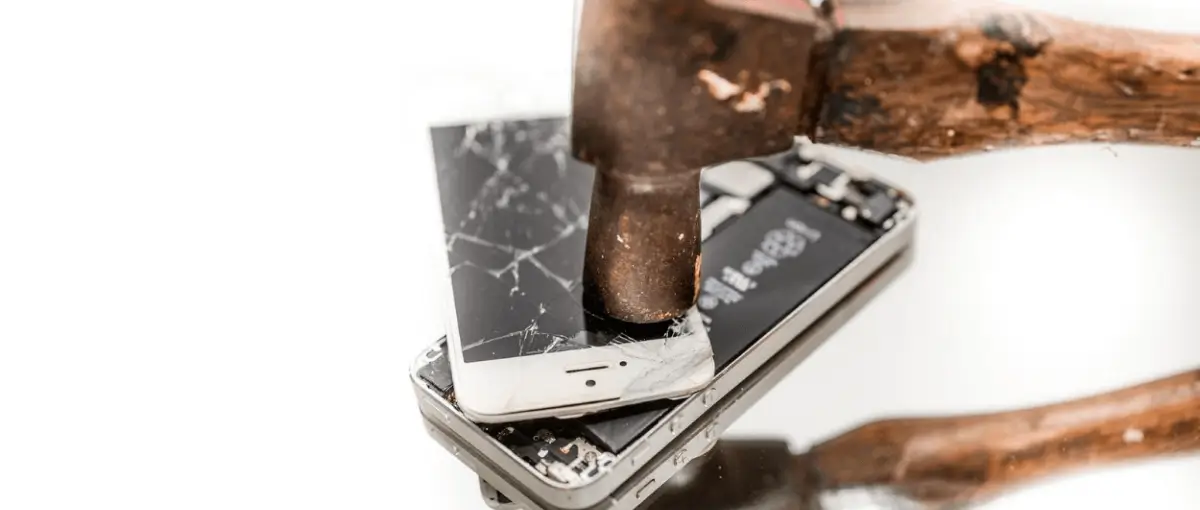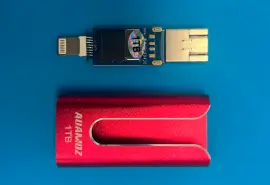With frequent upgrades to newer, more powerful mobile devices, users often find themselves collecting old cell phones and tablets. However, you do not need to keep outdated electronics in a forgotten drawer. Several methods exist to safely destroy old cell phones and tablets without exposing sensitive data or harming the planet.
Below, we explain how to securely dispose of cell phones and other devices instead of discarding them.
Key Takeaways:
- Mobile devices often store private data that could lead to emotional distress or financial loss if compromised.
- Users can reset the device to factory settings and overwrite the file system or physically destroy the phone and tablet.
- The best method depends on the exact situation.
- Our media disposal and destruction service eliminates the potential for data recovery.
Why Proper Disposal of Mobile Devices Matters
Modern smartphones and tablets contain a substantial amount of personal data. This fact makes old mobile devices an attractive target for bad actors. Especially much older models that lack robust encryption standards. They can obtain contacts, text messages, photos and videos, account credentials, financial data, and work files from a discarded device. Retrieving confidential information could result in a windfall for minimal effort.
In addition to data breach risks, there are environmental concerns. E-waste is a global health issue due to the hazardous materials used in some gadgets. It also wastes rare earth metals that companies could recycle.
As a result, properly disposing of old electronics is a vital practice for data protection and sustainability reasons.
Safest Destruction Methods To Protect Sensitive Data
You will need to prepare before destroying your device and the data stored on it.
First, save the contents of the device before disposing of it. Users can create backups through a cloud service like iCloud or Google One. This step ensures irreversible data loss does not occur. After an upgrade, you can even utilize those backups to migrate data to a new phone.
To create an iCloud backup on an iPhone or iPad:
- Open Settings.
-
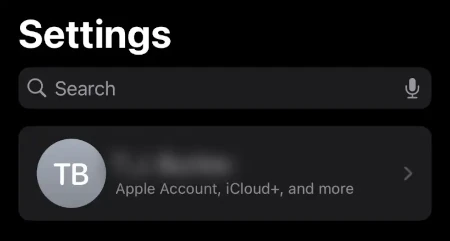 Go to the Apple Account menu at the top of the screen.
Go to the Apple Account menu at the top of the screen. -
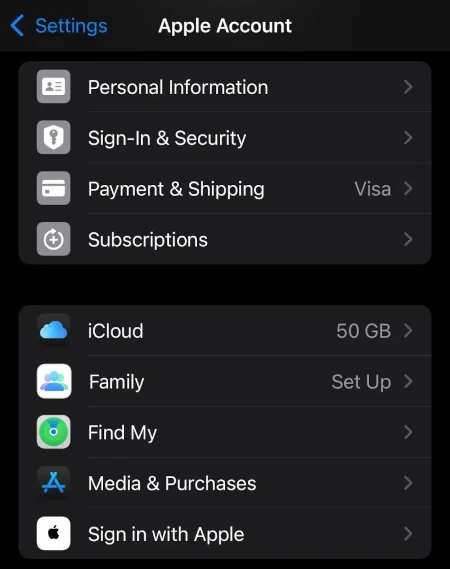 Press iCloud.
Press iCloud. -
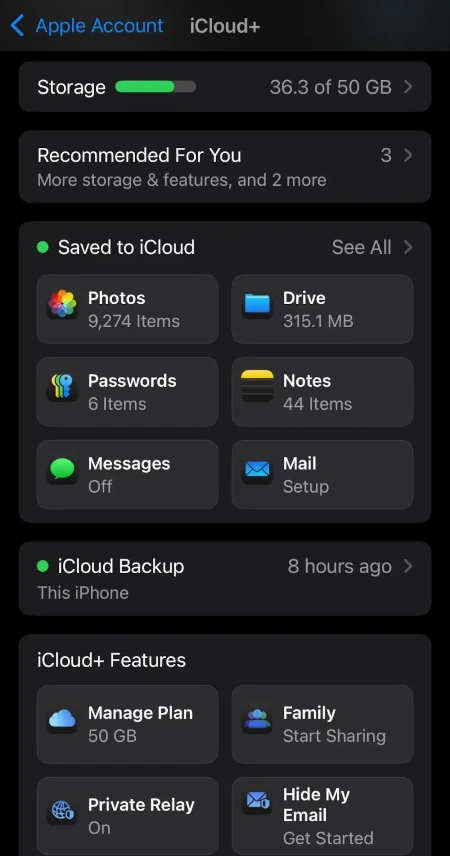 Select iCloud Backup.
Select iCloud Backup. -
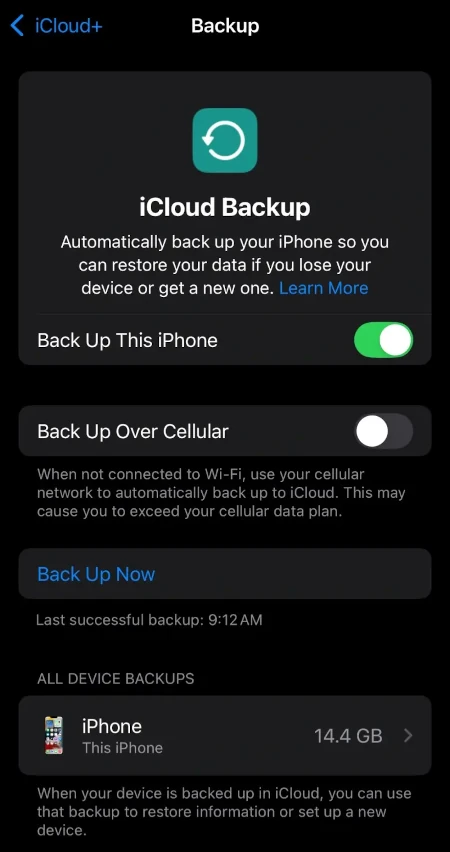 Tap Back Up Now.
Tap Back Up Now.
To create a Google One backup on an Android device:
- Open Settings.
-
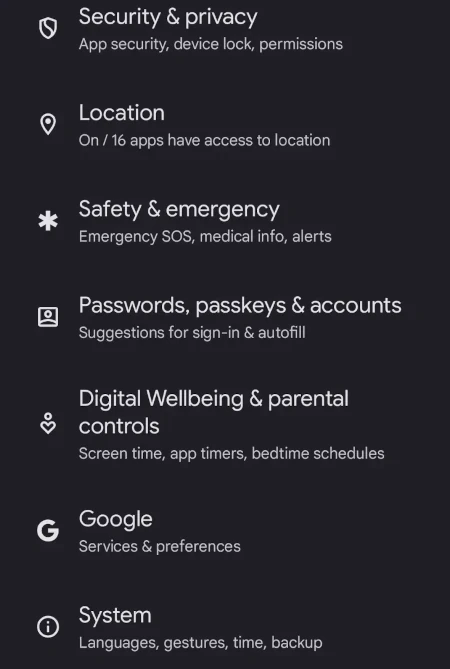 Select System.
Select System. -
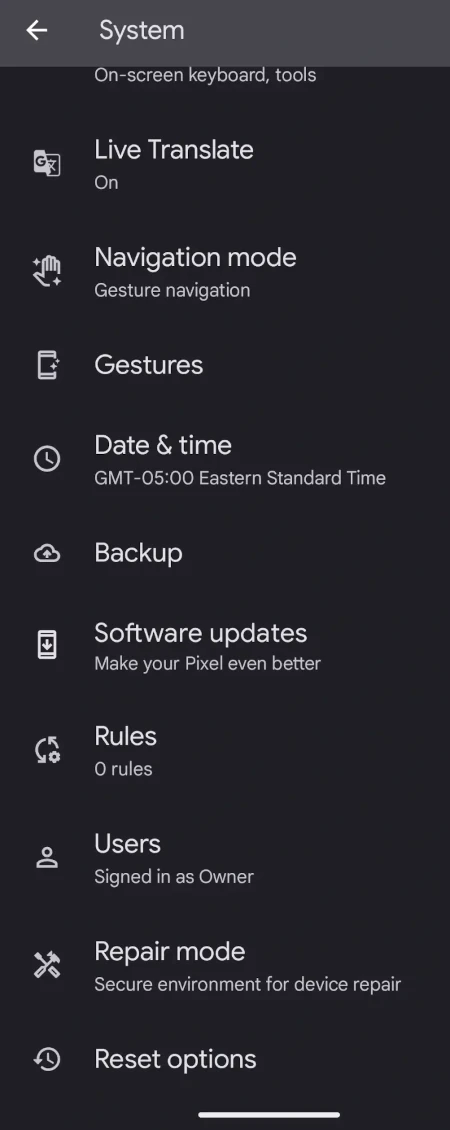 Tap Backup.
Tap Backup. -
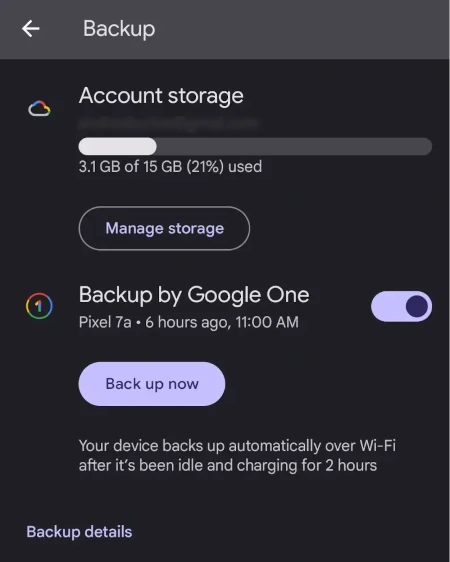 Select the desired data and press Back up now.
Select the desired data and press Back up now.
Check the cloud platform to confirm your backup was saved before destroying the device.
Next, deregister all accounts connected to the cell phone or tablet. For iPhone, that involves logging out of iCloud and other services and disabling the Find My iPhone feature. On Android, remove the Google account under Settings. All users must sign out of each third-party app, such as Instagram, Facebook, TikTok, Discord, WhatsApp, or Spotify.
Digital Data Destruction Tools
A factory reset of modern cell phones is one of the most reliable data erasure methods. The simple approach works because modern smartphones use complex encryption techniques to protect user data. An iPhone’s hardware encryption means that its encryption keys are destroyed upon resetting the device. As a result, the iPhone’s stored data is no longer accessible.
To perform a factory reset on an iPhone or iPad:
- Open Settings.
-
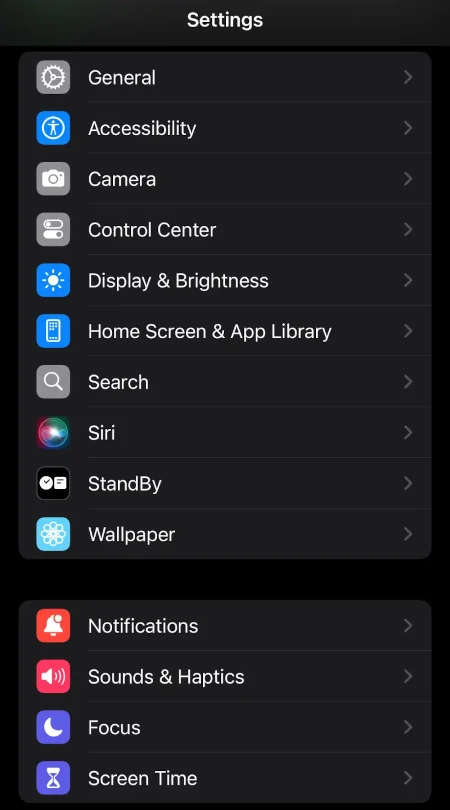 Tap General.
Tap General. -
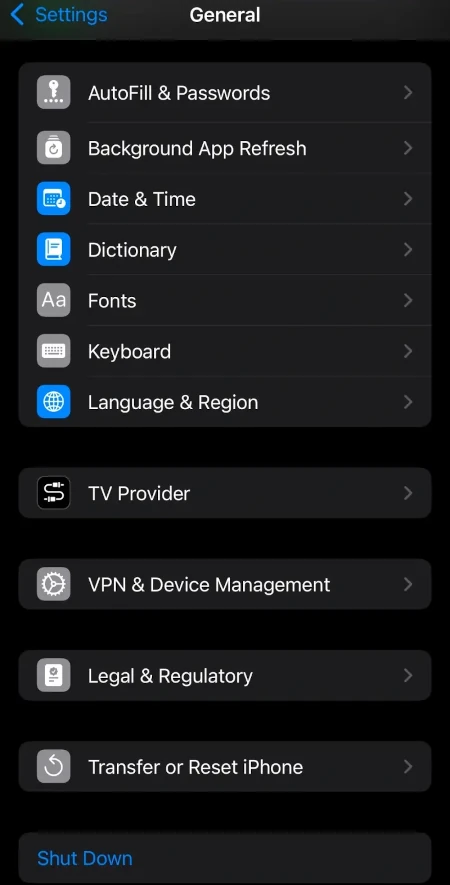 Select Transfer or Reset iPhone.
Select Transfer or Reset iPhone. -
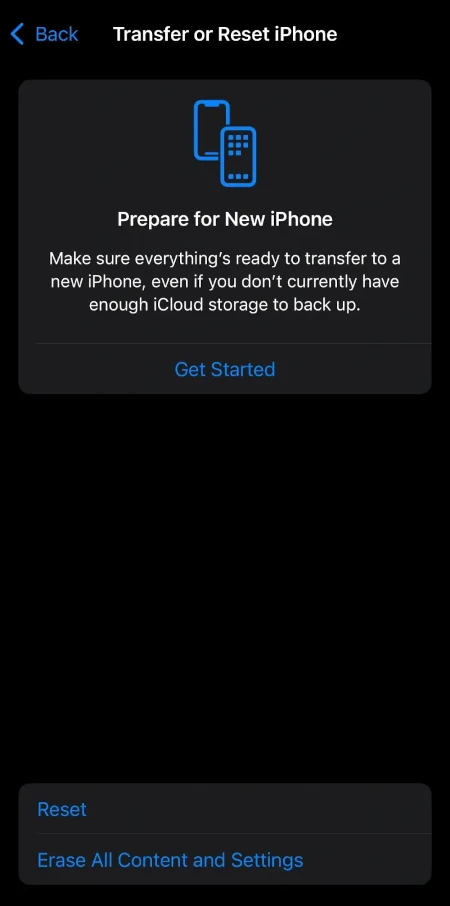 Choose Erase All Content and Settings.
Choose Erase All Content and Settings. - Confirm and follow the on-screen prompts.
In contrast, most Android smartphones and tablets employ file-based encryption. This method ties a series of encryption keys to specific files and directories. However, the result is the same. A factory reset overwrites the file system, deletes keys linked to the device, and prevents access to old user data.
To perform a factory reset on an Android device:
- Open Settings.
- Tap System.
-
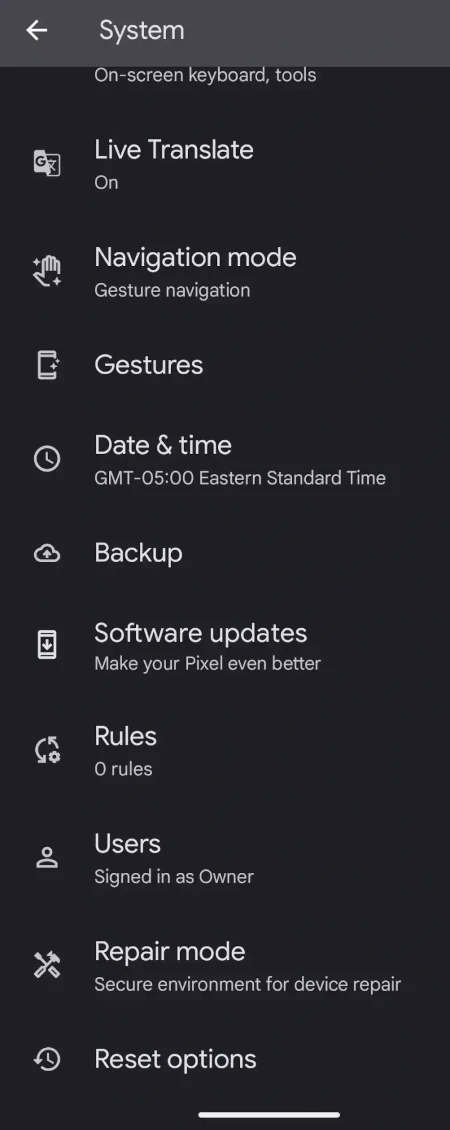 Select Reset Options.
Select Reset Options. -
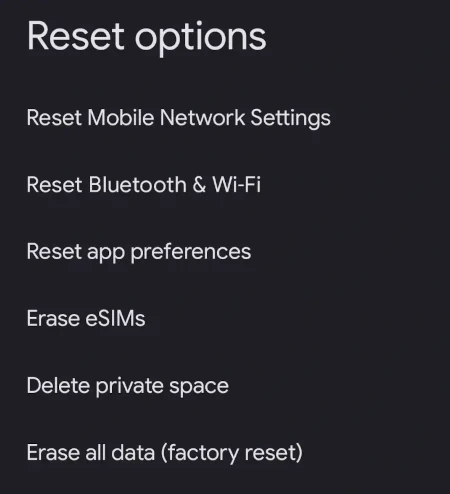 Choose Erase All Data (Factory Reset).
Choose Erase All Data (Factory Reset). - Confirm and follow the on-screen prompts.
Confirm that the cell phone has no connected accounts after resetting the device.
Note: You may need a third-party tool to purge digital data from a much older mobile device. Factory resets have been a strong option for iPhones since Apple introduced hardware encryption with the iPhone 3GS in 2009. They have worked on Android smartphones and tablets since file-based encryption was included in Nougat in 2016.
Physical Destruction of Devices
Some users want to guarantee that their personal and private data is gone forever. Physically destroying the phone or tablet after a factory reset can ensure that the highly sensitive data is unrecoverable. In other cases, compliance with regulations like HIPAA and GDPR mandates physical destruction as part of disposal.
Here are a few common methods for the physical destruction of devices:
- Shredding: An industrial shredder tears the device and its storage media apart. Shredding electronics safely is a very effective data destruction practice.
- Drilling or Hammering: Users punch holes through the device and components or smash them into pieces. For best results, severely damage the memory chips and not just the screen.
- Incineration: Extreme heat turns the device and storage medium to ash. Ideal for large-scale destruction and disposal.
The viability of each method varies based on the number of devices and the value of stored data.
Be sure to follow these safety tips if you plan to destroy the mobile device yourself:
- Wear protective equipment like goggles, masks, and gloves.
- Handle hazardous components like batteries with care.
- Dispose of the destroyed device through proper recycling channels.
Responsible Electronic Recycling
Consider finding a trade-in program or certified e-waste recycler if you opt for a secure data erasure method over destruction. Most carriers offer trade-in programs as part of their upgrade plan. Responsible electronic recycling reduces the ecological impact of toxic substances and the need for further mining of rare resources. In doing so, businesses and users protect their personal information and the environment.
Certified Data Destruction Services
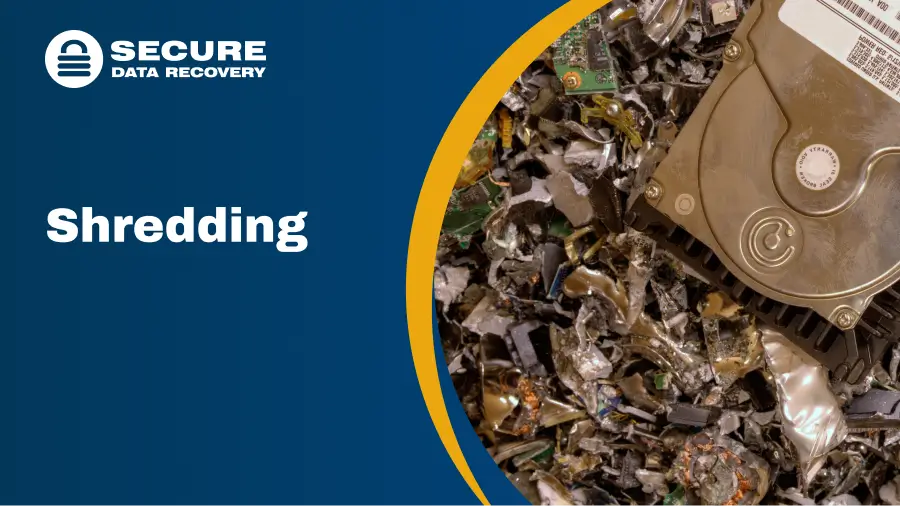
Secure Data Recovery understands the importance of safeguarding sensitive data. As the industry’s most certified data recovery service, we take handling and restoring private files seriously. That commitment to customer privacy extends to our media disposal and destruction services. We maintain cutting-edge tools to destroy devices, overwrite data according to the U.S. Department of Defense standards, and recycle components. Once finished, our team will issue a certificate of data destruction.
Call 800-388-1266 to speak with one of our experts about safely destroying old cell phones and tablets.

